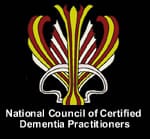3 Things to Look for in Professional Patient Advocate Services
 According to a study conducted by the AARP, 90% of seniors prefer to age in place. Unfortunately, families often struggle to provide their loved ones with the best care. It may be hard for senior adults to keep track of their medications, medical appointments, or medical diagnoses. Fortunately, that’s where patient advocate services come in.
According to a study conducted by the AARP, 90% of seniors prefer to age in place. Unfortunately, families often struggle to provide their loved ones with the best care. It may be hard for senior adults to keep track of their medications, medical appointments, or medical diagnoses. Fortunately, that’s where patient advocate services come in.
What Is A Personal Patient Advocate?
The Centers for Diseases Control and Prevention (CDC) estimates that 84.5% of US adults had contact with a healthcare professional over the last year. Prior to the visit, most patients may have to prepare for the appointment. This may involve activities such as making a list of their medications, completing paperwork, noting their questions, and much more.
For seniors, this can be a hectic process that may require assistance from a family member. The situation may be worse for patients suffering from dementia. At times, the primary caregiver may not be in a position to accompany the patient to their doctor’s appointments. The family has the option of hiring patient advocate to assist in this situation.
Patient advocates accompany their clients to their physician visits, acting as a liaison or a go-between. They understand the client’s medical history, medications, and healthcare needs. They can help the patient and their families better understand their diagnoses and navigate the aging life care process.
Most healthcare institutions offer patient advocate services. However, you may have a question regarding whose interest they represent: yours or the organization. You can avoid this heartache by hiring an independent RN to act as your senior patient advocate. But what should you look for in a patient advocate? Here are three specific things to consider.
- Qualifications
A study by the Robert Wood Johnson Foundation found out that 90% of seniors above 65 have at least one chronic condition, with 77% having two or more chronic diseases. You may need to find a patient advocate that understands the intricacies of aging life care. Do they have experience in healthcare? Are they a registered nurse? Are they a member of professional organizations? Do they have training in geriatric care?
- Services Offered
Aging life care may involve a wide scope of activities. You may need to understand what kind of help you need before starting the search. Inquire if the patient advocate specializes in any specific area. Some may focus more on filing paperwork, including insurance and billing, while others focus on healthcare navigation and care management.
- Reputation
You need to find a patient advocate that you can trust with your medical records and private information. It is important to interview potential candidates and to feel comfortable with a patient advocate, request references. Have they handled similar cases to yours? What do the past clients say about their services? Are there any complaints on their websites or review sites, and how were they handled?
Patient advocate services can make navigating your healthcare easier by accompanying you to your doctor’s appointments and coordinating overall healthcare. If you need more information on what a patient advocate can do for you, contact RN4U in Charlotte, NC.

 Previous Post
Previous Post Next Post
Next Post









Recent Comments